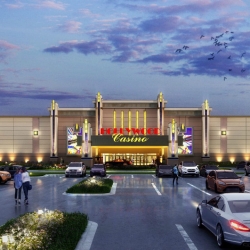
PokerStars, 888, and PartyPoker are a few of the online poker operators who’ve signed with land-based casinos.
The Pennsylvania Gaming Control Board (PGCB) announced June 15 as the launch of online gambling in the state. Kevin O’Toole, the Pennsylvania Gaming Control Board’s executive director, gave a press conference on Wednesday which laid out the PGCB’s plan for the online poker and online casino rollout.
During the news conference, O’Toole described online gaming as a “key component” of Pennsylvania’s gambling framework.
Kevin O’Toole said his experts told him a 90-day window for implementation was both feasible and desireable. The state’s top regulatory official said, “Staff has reviewed the estimated time that it would take for us and the industry to complete all necessary steps, and it is our view that 90 days would be adequate.”
With that in mind, he gave the state’s land-based casino operators a 90-day notice they should have their online casinos and poker sites ready by June 15. Terming it the “go-live” date, Kevin O’Toole said, “I have advised the 10 iGaming certificate holders and three iGaming operators that a coordinated go-live period for interactive gaming will commence on July 15, 2019.”
Pennsylvania Gambling Expansion
The implementation of online gambling therefore has been fast and efficient. It is only a little over a year and a half since Gov. Tom Wolf signed the omnibus gambling bill which authorized online casinos and card rooms.
In fact, gambling bill approved a vast expansion of gambling in Pennsylvania. The new law included not only online gambling, but also video lottery terminals (VLTs) in truck stops, tablet slots games in airport terminals, daily fantasy sports, sports betting, and up to 10 new satellite casinos placed around the state.
The full package is supposed to generate billions in revenue for Pennsylvania’s gambling industry, along with $200 million a year in tax revenues.
7 Online Poker Licenses
Already, the PCGB approved eight online casino licenses and seven online poker licenses. Online poker brands like PokerStars, partypoker, and 888poker have deals with Pennsylvania land-based casinos. Even non-poker operators like IGT, GAN, and Kambi have deals to launch online gaming portals, including poker sites and casino sites.
Observers want to see how the Pennsylvania online casino industry responds. New Jersey’s online gambling market generated $298 million in 2018. Online casinos contributed about $23 million to $24 million a month last year, but that number has grown closer to $30 million a month in 2019.
New Jersey Online Gambling Revenues
New Jersey online poker makes a much smaller contribution. In the first months of 2019, the monthly revenues hover between $1.8 million and $1.9 million. In both cases, Pennsylvania’s gaming market has the potential for bigger revenues.
Pennsylvania population tops 13 milion people, while New Jersey’s sits at 9 million. In a straight one-to-one scenario, Pennsylvania’s online gaming industry should generate 45% to 50% more than New Jersey’s. That would be $450 million or more in many scenarios.
Pennsylvania Online Gambling Comparison
The comparisons are not necessarily apples-to-apples. Pennsylvania officials set a higher tax rate, which could drive away customers if it leads to worse odds for the bettors. Also, the sub-licenses are more restrictive, so a PlaySugarHouse scenario might not play out in Pennsylvania. Changes could happen after the first results come in.
On the other hand, online casino operation should be comparable with New Jersey iCasinos. More operators will be active in Pennsylvania, spurring competition and giving bettors options.
Pennsylvania Online Poker
Pennsylvania online poker should outstrip New Jersey’s counterpart. The online poker sites should have a larger pool of players, which will lead to bigger guaranteed prize pools, bigger 1st place jackpots, and more events altogether.
The loss of interstate online poker is hurting New Jersey’s online poker industry already. It certainly undermined any chance Pennsylvania would join the Multi-State Internet Gambling Association (MSIGA). The MSIGA allows New Jersey, Delaware, and Nevada to share poker players in order to boost prize pools and jackpots.
